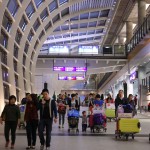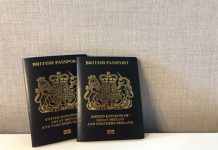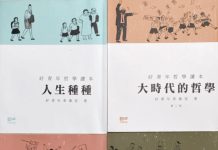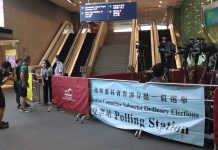Government targets second generation overseas Hongkongers to boost workforce
By Achlys Xi and Teenie Ho
Teresa Kuan was doing post-doctoral research in California before she received an offer to work as an anthropology professor at the Chinese University of Hong Kong (CUHK) in 2012. She jumped at the chance to return to the city she left at the age of five.
As an anthropologist studying China, Kuan says Hong Kong was an “obvious choice” because it is both close to the Mainland and an international cultural hub. “It’s such a fun, vibrant, dynamic city,” Kuan says. Although she was born in Hong Kong and holds a Hong Kong Identity Card (HKID), Kuan sees herself as culturally a Chinese American as she lived there for nearly 30 years.
Still, Kuan values the opportunities and lifestyle options found in Hong Kong. She is not alone, which is why so many foreigners have been drawn to living and working in the territory over the years. But in recent years, the city has faced tough competition from neighbouring cities and regions like Singapore, Shanghai and Taiwan in vying for foreign talents.
This comes as Hong Kong faces a rapidly ageing population. Figures from the Census and Statistics Department show the city’s workforce will start shrinking in 2018 and drop by 170,000 in 13 years. Projections show one in three Hongkongers will be aged 65 or over by 2041, meaning there will be fewer than two working people to take care of one elderly person.
This manpower shortage poses a challenge to the government to maintain the productivity of the city’s future workforce. In the latest policy address, Chief Executive Leung Chun-ying announced the government would target the children of Hong Kong people who had emigrated overseas as a way to bolster the skilled workforce. These returnees, who have foreign nationality, would need to apply under policies typically aimed at other incoming foreigners, such as the General Employment Policy and Quality Migrant Admission Scheme, in order to come and work in Hong Kong.
The government says a pilot scheme will be launched to attract second generation overseas Hongkongers, who would be bachelor degree holders aged between 18 and 40, to return to Hong Kong. Under the scheme, a stay pattern of “1+2+2+3” years would apply, by which the government would grant applicants a one-year visa and extend their stay if they can secure employment. They could then obtain a permanent HKID after seven years in Hong Kong.
The government believes these people’s knowledge of foreign languages and cultures makes them “quality” workers who might be more willing to come to Hong Kong because of their family ties to the city.
The aim is to draw in professionals like 37-year-old Lokman Tsui, assistant professor in the School of Journalism and Communication at CUHK. Born to and raised by parents from Hong Kong in Amsterdam, Holland, Tsui says family ties was one of the reasons he came here to work for internet giant Google after getting his PhD in the United States in 2010.
Here, Tsui reunited with family members and relatives after years of separation. He says he feels emotionally attached to Hong Kong as he grew up listening to Cantopop and watching Hong Kong movies and Cantonese-dubbed cartoons. Hong Kong holds a special appeal to him. “I like to be here, I want to be here. I can be anywhere else, but I wanna be here,” he says.
Career-wise, Tsui thinks his knowledge of multiple languages gives him a competitive edge here, “Hong Kong… has always been a bridge between the East and the West, and as long as it continues to do so, my skills will be useful here,” he says.







































